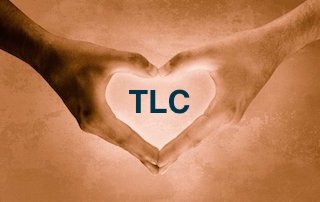Healthy Weight Loss
By Dr. Carol Ann Fischer, D.C., N.D.
Originally Published July 2010 in
Body Mind Spirit Guide
People believe
that weight loss can occur if calories or fat are reduced in the diet. Another
common belief is that eating only one meal a day, starving the body, or eating
only certain foods will help with weight loss.
A study
published in the American Journal of Clinical Nutrition revealed that caloric
intake alone was not sufficient to predict weight loss. The body adjusts to a
lower calorie diet by lowering its demand for energy. Restricting calories only
results in weight loss short term. Once the old eating habits return, the lost
weight is regained. Calories are the measurement of the potential energy in
food. Eating high calorie food too frequently will result in fat storage, as
there is not enough time for the body to use the food for fuel. When more
calories are consumed than the body can use, the body will convert the extra
calories into fat.
Weight loss can
occur with a balanced diet where less carbohydrate or sugar calories are
consumed compared to what the body needs. The body can then break down stored
fat to make energy, resulting in weight loss. A balance of the hormones related
to digestion and weight is key for the breakdown of stored fat.
The three
glands that make hormones relating to weight loss are the adrenal glands, the
thyroid, and the pancreas. The pancreas determines whether food is converted
into energy or fat. Carbohydrates and sugars are broken down during digestion
into simple sugars. Insulin moves the simple sugars from the blood into muscles
to use for energy.
According to
Stanford University School of Medicine, the average American consumes over 120
pounds of sugar each year. The pancreas produces higher and higher amounts of
insulin to handle this overload. Over time the cells of the body become
resistant to insulin and stop allowing insulin to move the sugar. Insulin then
builds up in the blood. This is known as insulin resistance.
The pancreas
makes glucagon, another hormone, to break down stored fat into simple sugar.
Glucagon is released when there is not enough simple sugar in the blood to
provide energy. Only when insulin is low will glucagon be released to break
down stored body fat. This is how weight loss occurs. When the body becomes
insulin resistant glucagon is no longer released, preventing weight loss even with
a lo w calorie intake.
The adrenal
glands also respond to sugar. They secrete many hormones, including cortisol,
which breaks down fat into sugar, which then activates the pancreas. The
adrenal glands also produce cortisol in response to stress. Ongoing stress
causes prolonged adrenal production of cortisol, which results in increased
weight gain especially around the abdomen. Indicators of stressed adrenals
include fatigue, digestive difficulties, cravings for sugars or
carbohydrate-rich foods like breads, pasta and potatoes, difficulty sleeping,
poor concentration, allergies, feeling stressed or overwhelmed, and unwanted
weight gain.
The thyroid
gland also responds to sugar, cortisol and, insulin. This gland secretes
hormones that control the rate of sugar conversion in order to keep the body
temperature at 98.6 degrees. A slow thyroid results in a slower metabolism and
difficulty with weight loss. Some symptoms of a slow thyroid included dry skin,
fatigue, hair loss, depression, cold hands and feet, poor digestion,
constipation, and difficulty thinking.
Look for hidden
sugars in the foods that are eaten. Many hidden sugars are listed on labels
asan “ose”. This includes dextrose, maltose, sucrose, glucose etc. Sugar
increases the calorie count, causes an imbalance in the hormones, and results
in unwanted weight gain. Visit www.TLCHolisticWellness.com for more information
on the Many Names of Sugar.
Insulin levels
can be controlled with diet by eating lean protein, complex carbohydrates,
which are found in whole grains and vegetables, and by adding good fats, like
flaxseed or Omega 3 oil, into the diet. A meal with low sugar intake decreases
insulin and increases glucagon, resulting in a reduction in stored fat and
weight loss.
If a dietary
change along with exercise does not result in weight loss, correct the
underlying hormonal imbalance between the adrenals, thyroid, and pancreas with
a combination of diet, lifestyle changes, stress reduction, and nutrition. Take
advantage of our Spring into Summer Special and get tested to determine if hormonal
imbalance is causing you unwanted weight gain. Call (734) 664 – 0339 during the month of June for
this No Charge Evaluation with Dr. Linda Solomon, DC, CCWFN, natural hormone balance
and weight loss specialist in Livonia. Visit www.TLCHolisticWellness.com
for more health information.


